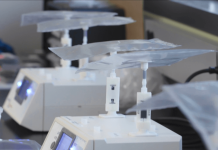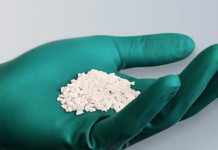US-based bone adhesive company RevBio has received a $2.4 million grant from the National Institutes of Health (NIH) to drive the company’s completion of a 20-patient trial of its bone adhesive biomaterial dubbed Tetranite.
Designed to fixate cranial flaps and enable bone fusion following craniotomy procedures associated with brain surgery, Tetranite previously received US FDA clearance for the 20-patient pilot trial designed to examine the material’s safety and efficacy.
Related: Symphera raises €2.5M funding to simplify laparoscopic surgery
The two-year Phase II Small Business Innovation Research (SBIR) grant from the National Institute of Neurological Disease and Stroke (NINDS) will fund the trial which is taking place at Semmes Murphey Clinic in Memphis, Tennessee, and Brigham and Women’s Hospital in Boston, Massachusetts, with first five patients having already been successfully enrolled.
Speaking after the results from one patient who underwent cranial flap surgery using Tetranite, Madison Michael, co-director of cranial base surgery for the Methodist Brain and Spine Institute and investigator for the study, said: “All radiographic follow-up images show continued adhesion of the bone flap to the surrounding skull with no complications.”
Craniotomy procedures are usually required to remove brain tumours, treat an aneurysm, relieve intracranial pressure, or perform deep brain stimulation among a number of other treatments.
Timothy Smith, director of the Computational Neuroscience Outcomes Center, added: “Advanced techniques have led to longer-term survival rates for patients who undergo brain surgery.
“Having just been through a very traumatic experience, improved bone healing through the revascularisation of the flap and better cosmetic outcomes are important for patient self-esteem and for helping them move on with their lives”.




